Excess weight during childhood and adolescence ‘may lead to infertility’, research claims
AUSTRALIA will face a fertility crisis among the next generation of girls unless we halt the expanding growth of our kids’ waistlines, experts have warned.
Illness
Don't miss out on the headlines from Illness. Followed categories will be added to My News.
AUSTRALIA will face a fertility crisis among the next generation of girls unless we halt the expanding growth of our kids’ waistlines, experts have warned.
And even if our daughters lose the weight in adulthood, if they go through puberty with excess weight they are more likely to retain long-term fertility problems.
One in four Australian children is considered overweight or obese and the issue is growing with 1 in 3 kids expected to be an unhealthy weight by 2028 according to Obesity Australia.
And the cost could be fewer kids being born or more reproductive intervention required.
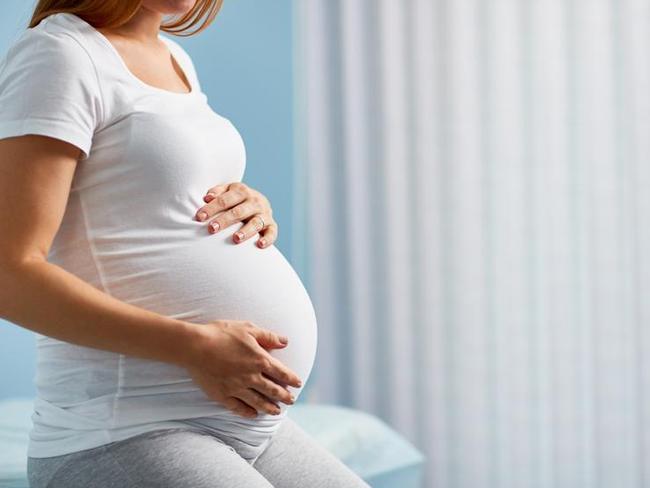
The warnings come as Aussie researchers have also for the first time identified that pregnant Asian women should not follow standard BMI for weight gain or they face increased risk of pregnancy complications.
Professor Helena Teede, director of the Monash Centre for Health Research and Implementation said the nation must wake up to the crisis on our doorstep.
“Mums and Dads need to be teaching their kids the importance of healthy weight from childhood,” she said.
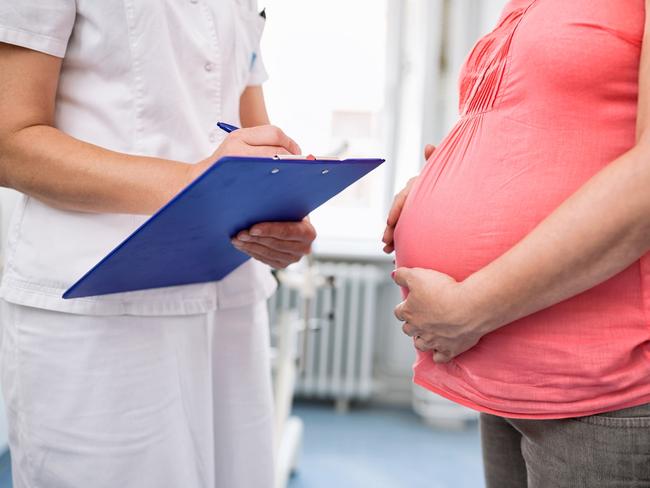
“If girls go through adolescence with excess weight they risk impacting their fertility. We are already seeing the impact of this … Australia has one of the highest rates of assisted reproduction in the world.”
Fertility Society of Australia president Michael Chapman predicted there would be a rise in the number of Australian couples seeking fertility assistance because of weight issues from pre-pubescence and beyond.
MORE: Kids school manufacturers sneakily increasing sizes
MORE: Parents with demanding jobs risking the mental health of their children
Currently 1 in 6 Australian couples seek assistance with fertility but Professor Chapman says this will increase to 1 in 5 because of the expanding waistlines of our children.
“Girls from the ages of 8-10 who carry excess weight are more likely to develop polycystic ovarian syndrome which can lead to fertility issues,” Professor Chapman said.
“Parents need to realise they may not get any grandchildren unless they ensure a proper diet for their children. This may be the only message that wakes people up to this problem.”
Australian Medical Association president Tony Bartone said GPs were seeing more and more children who were overweight or obese.
“Even from much younger age, from early primary school onwards, we are seeing an increase,” Dr Bartone said.
“I don’t think we’ve seen the full gamut of issues related to obesity prevalence … the endocrine system of the body is hugely complex and increases in weight at any age have the potential to impact the way the body responds at other points in the journey.”
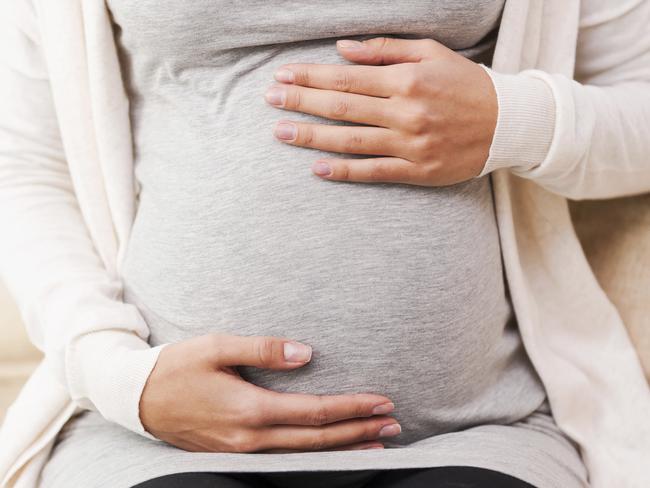
The crisis comes as Australian researchers have found Asian women have until now been given the wrong advice on pregnancy weight gain and should not use standard BMI measurements.
Professor Teede’s team, along with Medibank has developed a new pregnancy weight calculator that for the first time factors in ethnicity. Traditionally it has been calculated on height and weight only.
The Monash group studied 1.3 million pregnancies and previous research to be able to show conclusively that an accurate recommended weight gain — factoring in ethnicity — is important to prevent pregnancy-related complications.
MORE: Aussie businesses could pay for egg freezing
MORE: More than $40 million spent on kids’ gym memberships annually
The findings have been published in the Journal of the American Medical Association.
Professor Teede said 60 per cent of Australian mothers put on too much weight during pregnancy.
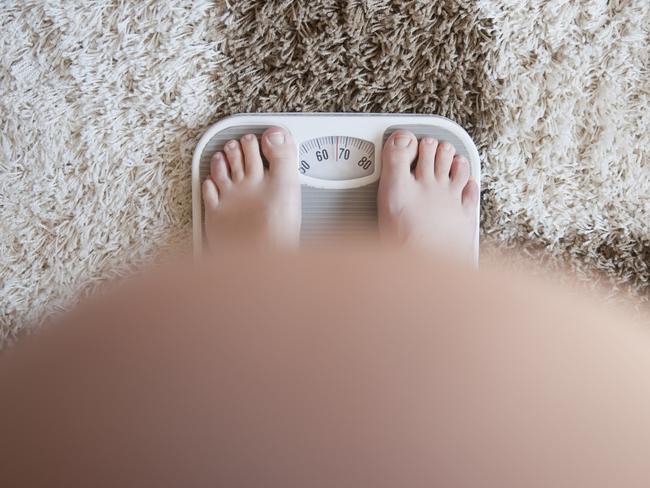
“For the first time we’ve worked out that sticking to the recommended weight gain is important to prevent complications during pregnancy and that the recommended weight gain is different based on ethnicity, particularly for Asian women,” she said.
But Mr Chapman said he believed too much focus on weight gain during pregnancy caused stress among mothers.
“I don’t even weigh patients anymore. I’m not convinced that weight gain in pregnancy is a vital factor.”
REAL LIFE
RONNIE Ritchie and Julia Hodgins are both in their third trimester of their first pregnancy.
The 33-year-olds are both healthy and exercise when they can and are due to give birth to baby girls in just a few weeks.
Ms Ritchie was even cycling to and from work 40 minutes each way a few weeks ago.
“I’ve had to slow down a bit now,” she said.
Both women said they’ve put on a bit of weight during pregnancy but not too much.
The difference between the two?
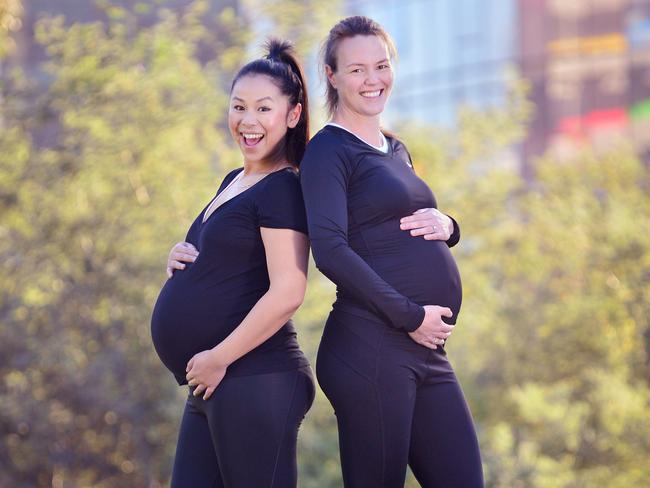
Ms Hodgins is Asian and Ms Richie is caucasian.
And Ms Hodgins’s Asian heritage could be a factor in her developing gestational diabetes, according to new research showing Asian women face increased risk of pregnancy complications.
“I was probably eating for two sometimes but not overly,” Ms Hodgins said.
“It was really disappointing when I got the test back to say I had gestational diabetes.” Ms Hodgins said she was heartened to know there was now a resource that could guide her as to an appropriate weight gain, taking into account her ethnicity.
“Maybe I needed to gain less than other people of different ethnicities.”
Ms Ritchie said it was often very confusing about what was the appropriate weight gain during pregnancy and exercise levels and that there needed to be clearer guidance for women.
“Everyone tells you to eat whatever you want and stop exercising,” she said.
“It’s so difficult to really understand what is the right thing to do you can read 10 different articles or 10 different blogs and they all tell you something completely different.”
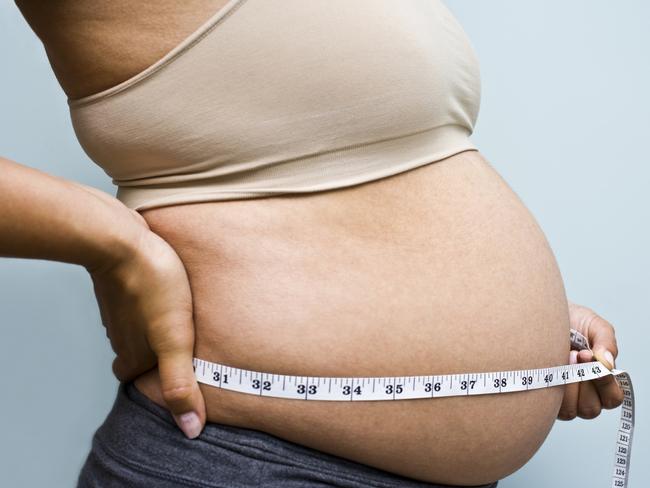
HEALTHY WEIGHT GAIN DURING PREGNANCY (NOT FACTORING IN ETHNICITY) *weight gain includes baby, placenta, fluid etc for single pregnancy
Pre-pregnancy BMI category: Underweight
Recommended weight gain: 12.5-18kg
Pre-pregnancy BMI category: Normal Weight
Recommended weight gain: 11.5-16kg
Pre-pregnancy BMI category: Unhealthy weight/Overweight
Recommended weight gain: 7-11.5kg
Pre-pregnancy BMI category: Very unhealthy weight/Obese
Recommended weight gain: 5-9kg
Source: Monash Centre for Health Research and Implementation
A GUIDE TO HEALTHY PREGNANCY WEIGHT
• Reaching a healthy weight before you become pregnant
• Talk to your doctor or midwife regarding the recommended weight gain for “your” pregnancy
• Maintaining a good balance of diet and exercise
• There is no need to “eat for two” as previously thought
• Attend regular antenatal appointments
• Your doctor or midwife may refer you to a dietitian to help plan a healthy diet or recommend specific supplements
• After the baby is born, maintain healthy diet and exercise habits
• Highly restrictive diets are not recommended before, during or after pregnancy
Source: RANZCOG — Royal Australian and New Zealand College of Obstetricians and Gynaecologists
